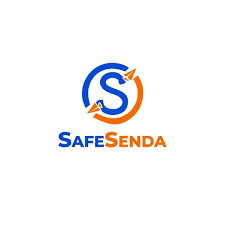Founded in 2022 by Nkechi Iyke-Ukaegbu and Ikechukwu Ukaegbu, SafeSenda, a crypto-to-naira exchange platform, has fully launched operations in Nigeria. The startup offers users an alternative means of converting their crypto assets to local currency (as against the predominant peer-to-peer (P2P) transfer system).
With this move, SafeSenda is entering a crypto market rife with regulatory tensions and government scrutiny.
Backstory
In Nigeria today, being a crypto holder can be a good enough reason to have your bank accounts closed and the funds in them withheld. It wasn’t always like this, though. In February 2021, Nigeria’s apex bank pushed a nationwide order to bring crypto adoption to its knees. The order criminalised cryptocurrency handling, putting millions of Nigerians at risk.
With every passing year in the last decade, crypto adoption in Nigeria surged tremendously, eventually placing the west African giant at the forefront of crypto and Bitcoin adoption in the continent. While crypto pundits and proselytisers gleefully celebrated Nigeria’s increasing adoption of cryptocurrency, the Central Bank of Nigeria (CBN) directed all banks to “desist from transacting in and with entities dealing in cryptocurrency.” Banks were also ordered to close the accounts of “persons or entities involved in cryptocurrency transactions within their systems.”
Perhaps, the most interesting thing about CBN’s move is that the number of crypto holders in Nigeria seemed to increase from 10 million the previous year to 13 million in 2022. However, these 13 million Nigerians cannot exchange their cryptocurrency for cash directly. Instead, they rely on the P2P model, whereby one person transfers coins to another, and the receiver initiates a regular bank transfer to the seller.
Convenient as it may seem, the P2P model is fraught with dangers. Some users may abscond from the platform after receiving crypto from others. Bank transfers are sometimes inefficient and subject to a third party. The P2P process is generally considered slow and risky, especially as it depends on other platform users.
These are the pain points SafeSenda is trying to solve by positioning itself as a surefire way to convert crypto to naira.
Crypto companies like SafeSenda are not licensed to operate with Nigerian banks. And so, the SafeSenda team has built an internal model that circumvents CBN’s regulatory hurdle to offer its users a seamless crypto-to-naira exchange experience.
Speaking about the motivation behind the startup, co-founder Ukaegbu said they were inspired to build SafeSend because it made sense to solve some of the pain points of P2P trading in Nigeria.
“Due to a hostile regulatory environment in Nigeria, most of the transactions in the surging crypto trading and exchange market are done via P2P platforms. P2P is mainly for experienced hands, time-consuming, and can take anywhere from many minutes to up to 72 hours to complete.”
The startup is currently at the MVP stage and is being bootstrapped by its founders.
On Friday, the 23rd of September, TechCabal in partnership with Moniepoint (by TeamApt) will host the most important players in tech and business on and off the continent to discuss the future of commerce in Africa. Register now to attend.




















